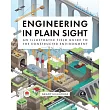Prof. Dr. Nikos E. Mastorakis received his B.Sc. and M.Sc. (Diploma) in Electrical Engineering from the National Technical University of Athens (Greece) and the Ph.D. in Electrical Engineering and Computer Science from the same university. He also received the B.Sc. (Ptychion) in Pure Mathematics from the National University of Athens, Greece. He also studied Medicine in the Medical School of Athens of the same university. He has served as special scientist on Computers and Electronics in the Hellenic (Greek) Army General Staff (1993-1994) and taught several courses in the Electrical and Computer Engineering Department of the National Technical University of Athens (1998-1994). He has also served as Visiting Professor at the University of Exeter, School of Engineering (UK, 1998), Visiting Professor in the Technical University of Sofia (Bulgaria, 2003-2004) while he is now Professor in the Technical University of Sofia and also Professor in the department of Computer Science at the Military Institutions of University Education (MIUE) - Hellenic Naval Academy, Greece.
Prof. Dr. Nikos Mastorakis was the first that solved with several different approaches the former unsolved problem of Multivariable Factorization and published it. He was also the first scholar that completely solved the problem of stability for Multidimensional Systems using Genetic Algorithms. Also, was the first to construct an Electronic Musical Instrument with the spaces of the Byzantine music. He is an active researcher in Applied Mathematics and Computer Science (Systems Theory, Control, Optimization Theory, Algorithms Theory, Signal Processing, Robotics, Computational Intelligence). The editor of over 200 Books and the author of 5 books, Dr. Mastorakis has published more than 1200 papers in international books, journals and conferences. An active reviewer of 26 International Journals and member of the Editorial Board of 13 International Journals and Editor of International Book Series: (Editor of the series? Electrical and Computer Engineering? (WSEAS Press) and Editor of the series? Mathematics and Computers in Science and Engineering? (WSEAS-Press), Member of the Editorial Board of Advances in Computation: Theory and Practice by NOVA), Dr. Mastorakis has received several awards (Royal Society of England, Hellenic National Research Foundation, etc.) for his academic studies and his scientific research.
Prof. Dr. Nikos Mastorakis is the Editor-in-Chief in many International Journals. He was the General Chairman in more than 30 International Conferences. He has organized more than 40 Special Sessions, 3 Workshops and has given many plenary lectures. He is also a member of IEEE (Senior Member), New York Academy of Sciences, of A.F. Communications and Electronics Association, American Association for the Advancement of Science and other smaller scientific societies.
Dr. Mastorakis is a registered professional electrical and mechanical engineer. He is also Honorary Professor, University of Cluj, ROMANIA. He has received the Prize of Excellence from Romanian Academy of Science, Bucharest, ROMANIA and he is also Professor at the ASEI (Military Institutes of University Education), Hellenic Naval Academy, GREECE since 1994.
Imre J. Rudas graduated from Banki Donat Polytechnic, Budapest in 1971, received the Master Degree in Mathematics from the Eotvos Lorand University, Budapest, the Ph.D. in Robotics from the Hungarian Academy of Sciences in 1987, while the Doctor of Science degree from the Hungarian Academy of Sciences in 2004. He received his first Doctor Honoris Causa degree from the Technical University of Kosice, Slovakia and the second one from "Polytechnica" University of Timisoara, Romania.
He is active as a full university professor. He served as the Rector of Budapest Tech from August 1, 2003 for a period of four years, and was reelected for three years in 2007. From 2010 Budapest Tech was changed to Obuda University and he was elected as the rector for five years.
He is a Fellow of IEEE, Senior Administrative Committee member of IEEE Industrial Electronics Society, member of Board of Governors of IEEE SMC Society, Chair of IEEE Hungary Section and Vice-President of the Hungarian Academy of Engineering.
He is the treasurer of IFSA (International Fuzzy System Association), he has been the President of Hungarian Fuzzy Association for ten years.
He serves as an associate editor of some scientific journals, including IEEE Transactions on Industrial Electronics, member of editorial board of Journal of Advanced Computational Intelligence, member of various national and international scientific committees. He is the founder of the IEEE International Conference Series on Intelligent Engineering Systems (INES) and IEEE International Conference on Computational Cybernetics (ICCC), and some international symposia. He has served as General Chairman and Program Chairman of numerous scientific international conferences.
At the Board of Governors meeting during the flagship conference of IEEE Systems, Man, and Cybernetics Society on October 7, 2018 in Miyazaki, Japan, Imre J. Rudas is elected for the position of Society President at the period of 2020-2021. Imre J. Rudas has been extremely active in the Institute of Electrical and Electronics Engineers (IEEE). He has been IEEE Fellow since 2002, IEEE Hungary Section chair (2007-11), and founder of IES/RAS Joint Chapter, Computational Intelligent Chapter, and SMC Chapter in Hungary. He has attended numerous IEEE conferences as speaker, special session organizer or plenary/invited speaker. He’s been playing a very active role in SMC Society since 2002, as R8 Chapter Coordinator, member of the Board of Governors, Distinguished Lecturer, VP for Membership and Student Activities. He was the General Chair of the flagship conference of SMC Society, organized in Budapest, 2016.
Board of Governors members of SMC Society elect for the next president every second year, and this year they did it during the SMC 2018 international conference (October 7-10, 2018, Miyazaki, Japan), where they voted for Imre J. Rudas, the founding Rector of Óbuda University, Budapest, Hungary, active IEEE member, and highly appreciated professor of Hungarian and international scientific life. According to the voting Imre J. Rudas is the President-Elect of IEEE SMC Society.
His present areas of research activity are Computational Cybernetics, Robotics with special emphasis on Robot Control, Soft Computing, Computed-aided Process Planning, Fuzzy Control and Fuzzy Sets. He has published books, more than 500 papers in books, various scientific journals and international conference proceedings. He received more than 8000 citations for his publications.
Yuriy S. Shmaliy, IEEE Fellow, AAIA Fellow, received the B.S., M.S., and Ph.D. degrees in electrical engineering from Kharkiv Aviation Institute, Kharkiv, Ukraine, in 1974, 1976, and 1982, respectively, and the Dr.Sc. degree in electrical engineering from USSR Government, in 1992. Since 1986, he has been a Full Professor. From 1985 to 1999, he was with Kharkiv Military University, Kharkiv, Ukraine. In 1992, he founded the Scientific Center Sichron and was the Director in 2002. Since 1999, he has been with the Universidad de Guanajuato, Guanajuato, Mexico, and from 2012 to 2015, he headed the Department of Electronics Engineering in this University. He has 519 journal and conference papers and holds 81 patents. He has authored the books Continuous-Time Signals (Springer, 2006), Continuous-Time Systems (Springer, 2007), GPS-Based Optimal FIR Filtering of Clock Models (Nova Science Publ., 2009), and Optimal and Robust State Estimation: Finite Impulse response (FIR) and Kalman Approaches (Wiley & Sons, 2022). He also edited the book Probability: Interpretation, Theory and Applications (Nova Science Publ., 2012). His current interests include robust state estimation, statistical signal processing, and stochastic system theory. His discrete orthogonal polynomials are called discrete Shmaliy moments. He was awarded a title, Honorary Radio Engineer of the USSR, in 1991, was with the Ukrainian State Award Committee on Science and Technology, in 1998-1999, and has been IEEE Fellow Committee Member, in 2023-2024. He was the recipient of the Royal Academy of Engineering Newton Research Collaboration Program Award, in 2015, IEEE Latin America Eminent Engineer Award, in 2021, and several best conference paper awards. He was invited many times to give tutorials, seminars, keynote lectures, and plenary lectures.



 天天爆殺
天天爆殺  今日66折
今日66折 

























 博客來
博客來 博客來
博客來 博客來
博客來 博客來
博客來 博客來
博客來